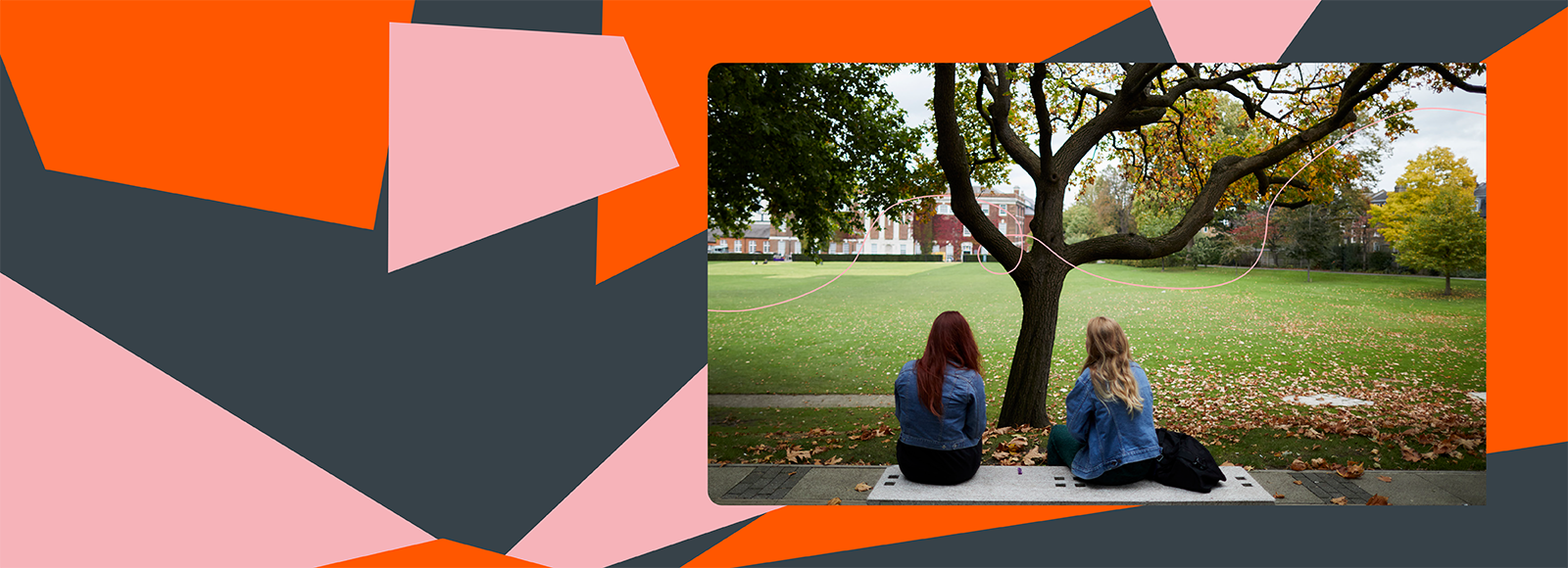Masters Degree Description
You might be a teacher who writes; a writer interested in education; a poet, a novelist or a short story writer. Whatever your background, this Masters will help you develop your creative writing skills and learn how to teach them.
- This is an MA in Creative Writing like no other. If you want to thrive as a creative writer and are passionate about learning, then this unique postgraduate programme is for you. You’ll not only progress exponentially as a writer, but also learn how to research and teach writing in a wide range of contexts.
- This pioneering Masters degree gives you a unique combination of creative writing and pedagogical skills that are highly sought after in today’s competitive workplace. You’ll grow as a writer, and gain skills and experience that could open doors to creative professions such as publishing and arts management, as well as roles in educational and non-profit organisations.
- You’ll have the opportunity to apply for innovative work placement programmes with our partners First Story and the Ministry of Stories, which have been developed exclusively for Goldsmiths. Recent placement students have gone on to be employed with these organisations after graduation.
- As well as providing professional skills, this degree will give you an invaluable toolbox of writing, teaching, and research strategies that will contribute to your personal and artistic growth.
- You’ll have plenty of opportunities to explore how creative writing can be used as a research methodology, and bring a unique contribution to many different forms of learning.
- You’ll have the opportunity to learn from some of the leading academics in the field of creative writing. Our staff are pioneers in the use of creative writing for research. The head of programme, Francis Gilbert, has taught creative writing to all ages, and is the author of best-selling memoirs, novels and educational guides.
- This degree is interdisciplinary, and you’ll work with experts in education, creative writing, and psychology. You will gain insights into the areas of race, action research, ethnography, queer theory and many others to further enrich your studies.
- You’ll learn how writing can be used in dynamic, real-world settings such as charities, prisons, schools, creative and mental health organisations, and the cultural/corporate sector.
- Alumni include some of the most significant writers to emerge in recent years such as Raymond Antrobus, Dean Atta, S.K. Perry and Sara Hirsch – read what our students and graduates had to say below.
- You’ll benefit from our many partnerships with high-profile creative and educational organisations including First Story, Apples and Snakes, the British Library, Ministry of Stories, and the Poetry Society. Our students have previously taken part in performances, poetry and writing workshops, drama productions, and creative research projects for these institutions, as well as getting paid to work in schools, hospitals, and charities.
Entry Requirements
You should have (or expect to be awarded) an undergraduate degree of at least second class standard in a relevant/related subject.
You will need to submit a portfolio of your creative or life writing when you apply. Your portfolio should include one item, or a combination of items, from the following list (up to a maximum of 6,000 words):
- 1 or 2 short stories
- 10-15 poems
- 2 or 3 extracts from a novel
- 2 or 3 extracts from non-fiction writing
Fees
For fees and funding options, please visit website to find out more
Programme Funding
Goldsmiths offers a range of financial support including postgraduate scholarships, bursaries and fee waivers. These are awarded based on a variety of criteria, for example academic achievements or personal circumstances.
Module Details
You’ll have the opportunity to develop your own creative writing practices and explore a range of educational approaches towards creative writing.
You’ll work with practising and published creative writing lecturers and education lecturers in collaboration with professionals working in local cultural institutions.
You’ll participate in creative and life writing workshops and research creative writing pedagogies in classrooms and educational settings.
You have to complete 180 credits points, made up from:
One compulsory module in the Department of English and Creative Writing:
Workshop in Creative and Life Writing (30 credits)
Two compulsory modules in the Department of Educational Studies in association with the British Library, Poetry Society, English and Media Centre, Apples and Snakes, Ministry of Stories, The Complete Works (a distance learning version of these two modules is also offered):
Teaching Creative Writing (which explores how to teach creative writing) (30 credits)
Educational Research into Creative Writing (which explores how to research creative writing) (30 credits)
An optional module in either the Department of Educational Studies (30 credits)
A dissertation in the Department of Educational Studies or the Department of English and Creative Writing (60 credits)
Practitioners who already have existing M-level credits may transfer these on to the MA.
Learn more about Goldsmiths

A melting-pot of ideas, one creative powerhouse
One Goldsmiths
At Goldsmiths, academic excellence and imaginative course content combine to make a pla...
